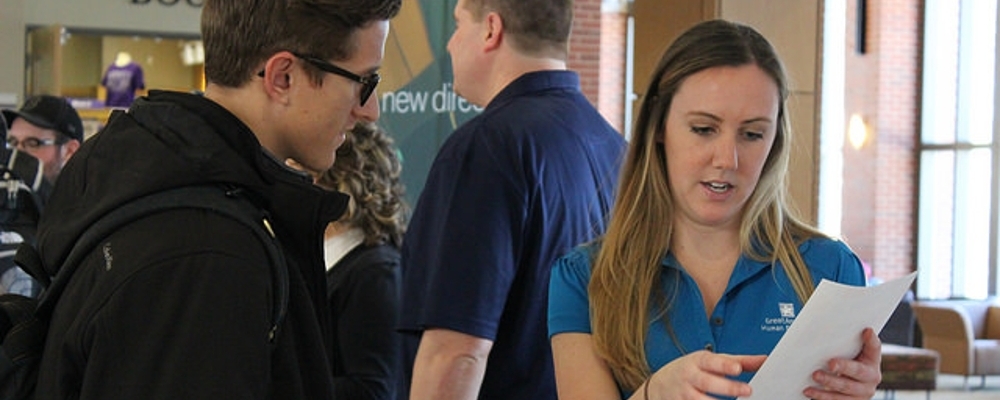Cover Letter & Personal Statement

Cover letters
Cover letters should grab the reader’s attention and to generate interest in you as an applicant. It should point the reader to your resume. A resume briefly tells a potential employer what you have done in the past and cites each experience or activity individually. A cover letter, however, can elaborate on those experiences and give the employer a better idea of why you pursued them. You can also relate how your experiences complement one another. Some cover letters are used to apply for a particular position, while others are sent as letters of inquiry. A well-written letter can help heighten the employer's interest in learning more about you by reading your resume and meeting you for an interview. It also gives the employer a sample of your writing skills. Remember, the cover letter offers an employer a sample of your writing and organizational skills. Spend adequate time on them and critique them carefully.
Resources
- Cover Letter Basics to Get You Started
- Cover Letter Format or Cover Letter Structure Line by Line
- Sample Cover Letter
- Cover Letter Tips
- Other Sample Correspondence- references, thank-notes, letters of inquiry, etc.
Personal statements
Graduate and professional schools often require some sort of written statement as a part of the application. The terminology differs but may include "statement of purpose," "personal statement," "letter of intent," "personal narrative," etc. Some statements require rather specific information—for example, the applicant's intended area of study within a graduate field. Others suggest subjects which should be addressed specifically. Still others are quite unstructured, leaving the applicant free to address a wide range of matters. Some applications call for one statement, while others require responses to a series of six or more questions, ranging from 250 to 750 words each. The importance of the statement varies from school to school and from field to field.
As you begin to write
Think about your life and why you are applying to graduate or professional schools. Ask yourself, "What do I want the admissions committee to know about me that is not already in my application?" To get started, you might want to ask yourself the following questions:
- What is important to me?
- What am I interested in?
- What am I proud of?
- What significant experiences have I had?
- What kinds of qualities are necessary for the profession I wish to pursue?
- Why do I think I possess these qualities?
After you have thought about your life and goals, think about the profession you are intending to enter. What are the skills and values of people in that particular profession? How do they match with yours? How can you highlight those values and skills in your personal statement?
Writing your personal statement
Start early, plan on writing and revising several drafts. Schedule specific times for this important and time-consuming task. Understand the questions thoroughly. Brainstorm your achievements, career goals, leadership, and personal interests. Narrow your emphasis to one specific theme or point. Begin your essay with this theme, and the following paragraphs should logically develop and illustrate it. Work towards a rough draft. Then revise it. Have others read it. Continue to revise the draft until you have a clear, concise, error-free essay.
Resources at Cornell
- Faculty—if you are applying to graduate school in a specific field, it is advisable to have a faculty member read your essay.
- The Writing Studio—part of The Center for Teaching and Learning in Cole Library—they can help you in editing and revising your essay.
Letters of Inquiry
When you're interested in an organization but they may not have a job opening listed, you might consider writing a letter of inquiry. This is much like a cover letter in that you are describing your skills and experience; however, since you do not have a job description, you're sharing what you could possibly offer the organization and asking if they might be willing to connect with you in order to discuss possible openings with them or other organizations they may know of that are hiring.
